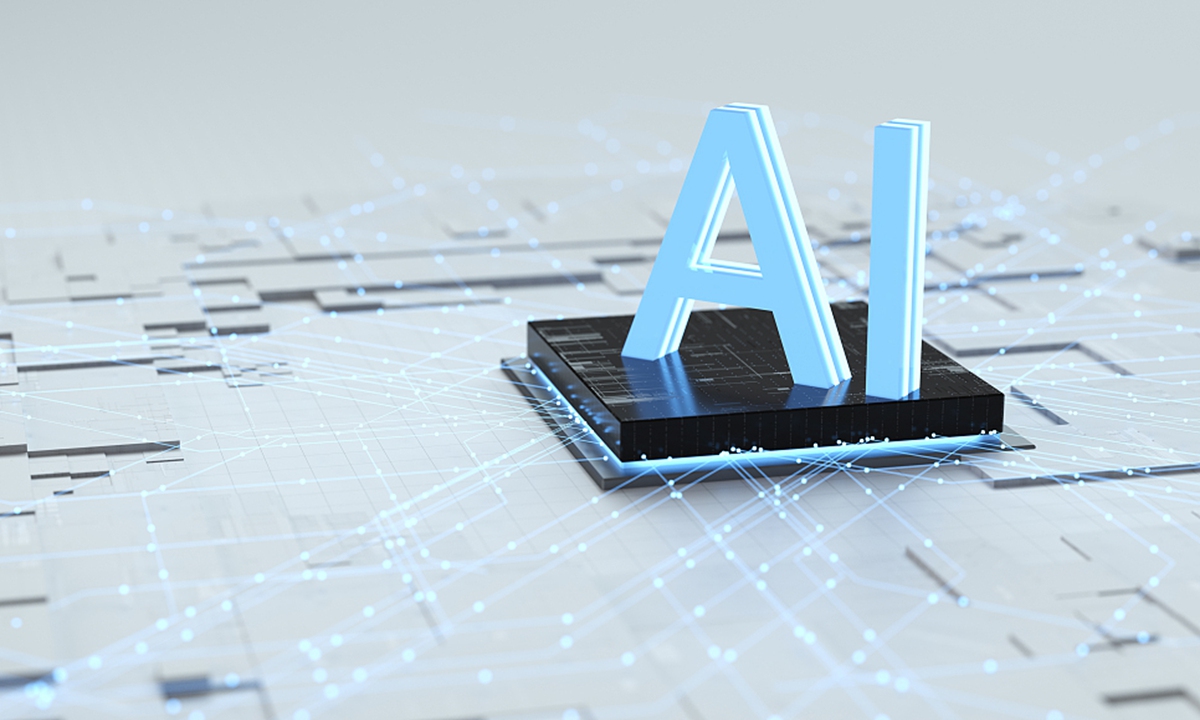US President Joe Biden’s new national security memorandum, which directs national security agencies to leverage AI in competition with rivals, underscores the US’ hegemonic act of securing a dominant position in this sector. However, Chinese experts cautioned that a broad interpretation of national security will potentially hamper global AI industrial cooperation and be used to stigmatize other countries.
Biden issued a national security memo on artificial intelligence on Thursday, entitling the Pentagon and US intelligence agencies to more quickly embrace and deploy artificial intelligence as a matter of national security, VOA reported.
The memo pushes hard on the use of AI, including bringing in more overseas workers with AI expertise, setting up facilities to accelerate US research and securing the AI supply chain against foreign meddling, according to Politico.
Treating the emerging technology as a key arena for global competition, the US seeks to maintain its development by establishing specific barriers that will help it retain a dominant technological advantage in the sector, Li Baiyang, an associate professor of intelligence studies with Nanjing University, told the Global Times.
Meanwhile, as countries compete to excel in AI security governance, the US is working to set rules for utilizing this technology and encouraging other nations to follow suit, with the goal of gaining international influence in AI security governance, Li said.
As China’s AI sector booms, the US government has become acutely aware of the competitive pressure exerted by its biggest rival.
VOA said the memo seeks to “prevent the country from falling victim to AI tools wielded by adversaries like China,” while Politico states that it “creates new policies to compete with China.”
Experts stated that China will not interfere with other countries’ internal strategic decisions, but cautioned that the memo could be used as a tool to obstruct global AI cooperation and to stigmatize other nations.
President Biden also directed agencies to help US firms protect AI technology from foreign spies. The White House statement claims “Our competitors want to upend US AI leadership and have employed economic and technological espionage in efforts to steal US technology.”
This memorandum makes collection of intelligence on its competitors’ operations against the US AI sector a top priority, and directs relevant US government entities to provide AI developers with the timely cybersecurity and counterintelligence information. It also bans agencies from using AI if they “do not align with democratic values.”
The US has already begun to implement some of the parameters outlined in the memo, such as applying AI to intelligence collection, while simultaneously urging others not to misuse the technology, a Beijing-based security expert who wished to remain anonymous told the Global Times on Friday.
In this way, Biden and his team believe that explicitly outlining these hidden rules will elevate their moral standing and allow them to point fingers at others and contain their actions, the expert stated.
Li said that further expanding the antenna of national security into AI industrial development will potentially interfere with international cooperation on this cutting-edge technology, including with China, as we are currently seeing an intensifying US crackdown on Chinese products.
The US government will reject collaboration with other countries if they fail to adhere to the rules it sets, which presents a difficult choice for nations that are already falling behind, potentially broadening the technological gap, the anonymous expert added.
While the US further intertwines their intelligence departments with these internet companies, AI users will be compelled to cede and share a great deal of personal information, the expert mentioned above said. “We should recall the alarm we felt when Snowden revealed the extent of the US government’s illegal internet surveillance. Now, we should consider how AI technology might be utilized by the US government as a tool for global surveillance.”
The memo establishes deadlines for future actions that will extend long beyond Biden’s tenure. It remains uncertain how Donald Trump or Kamala Harris will handle the policies if they are elected president, observers said.













